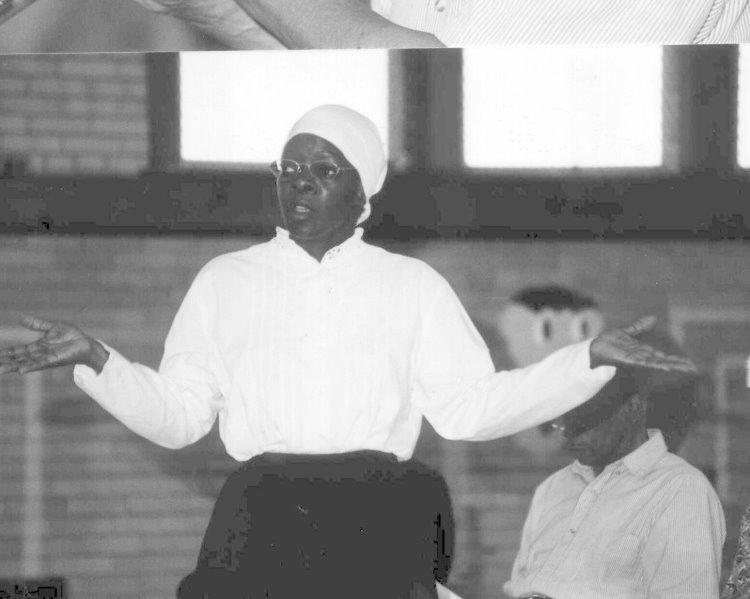THE GEORGIA BAKER STORY
|
|

ROSIE BROWN
Life on Mary Reynolds plantation was hard, but Georgia Bakerís memories of slavery on Alex Stephens plantation was the opposite. Her master was Alex Stephens the Vice President of the Confederacy and he represented the ideal slave master. He treated his slaves as family. They were well fed, well dressed, had comfortable living quarters and were treated with respect. Georgia Baker was interviewed during the depression. She had little to eat and she lived in deteriorated housing. It was experiences like Georgia Baker that promoted slavery while Mary Reynolds experience condemned slavery
Whar was I born? Why I was born on de plantation of a great man. It was Marse Alec Stephens' plantation 'bout a mile and a half from Crawfordville, in Taliaferro County, Georgia. Mary and Grandison Tilly was my ma and pa. Ma was cook up at de big house and she died when I was jus' a little gal. Pa was a field hand, and he belonged to Marse Britt Tilly.
De long log houses what us lived in was called "shotgun" houses 'cause dey had three rooms, one behind de other in a row lak de barrel of a shotgun. All de chillun slept in one end room and de grown folks slept in de other end room. De kitchen whar us cooked and et was de middle room.
Now dete you is axin' 'bout dat somepin'-t'-eat us had dem days! Oh, yessum! Marse Alec had plenty for his slaves to eat. Dere was meat, bread, collard greens, snap beans, taters, peas, all sorts of dried fruit, and just lots of milk and butter. Marse Alec had twelve cows and dat's what I learned to love milk so good. De same Uncle Jim what made our beds made our wooden bowls what dey kept filled wid bread and milk for de chillun all day You might want to call dat place whar Marse Alec had our vegetables raised a gyatden, but it looked more lak a big field to me, it was so big. You jus' ought to have seed dat dere fireplace whar dey cooked all us had to eat. It was one sho'-'nuf big somepin', all hill of pots, skillets, and ovens. Dey warn t never 'lowed to git hill of smut neither. Dey had to be cleant and shined up atter evvy meal, and dey sho' was pretty hangin' dat in dat big old fireplace.
Marse Alec warn't home much of de time, but when he was dat he used to walk down to de cabins and laugh and talk to his niggers. He used to sing a song for de slave chillun dat run somepin' lak dis:
Walk light ladies,
De
cake's all dough,
You
needn't mind de weather,
If de
wind don't blow.
Us didn't know when he was a~singin' dat tune to us chillun dat when us growed up us would be cakewalkin'* to de same song.
George and Mack was de hunters. When dey went huntin' dey brought back jus' evvything: possums, rabbits, coons, squirrels, birds, and wild turkeys. Yessum, wild turkeys is some sort of birds, I reckon, but when us talked about birds to eat, us meant part'idges. Some folkses calls 'em quails. De fishes us had in summertime was a sight to see. Us sho' et good, dem days. Now us jus' eats what-some-ever us can git.
Bull Whip Days, The Slaves Remember
Copyright © 2006 The Gospel Army Black History Group. All rights reserved.
Revised: 01/24/07.